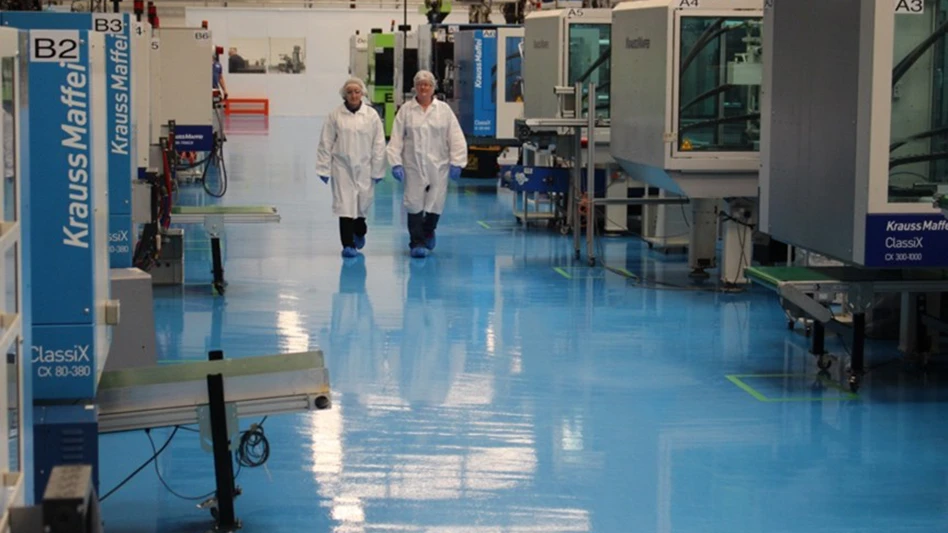
Knoxville, Tennessee – The SynDaver Synthetic Human was originally designed as a surgical simulator and has become the most elaborate and sophisticated full-body synthetic cadaver on the market, finding a quick role in medical schools.
The University of Tennessee's biomedical engineering program recently acquired one of the devices, which will allow faculty and students to advance research and education.
“The acquisition of the SynDaver is a game changer for our program,” said Research Assistant Professor and Lecturer Elizabeth Barker. “We can now give our students the opportunity to learn anatomy and design and test medical device prototypes using the most accurate synthetic model of a human body.”
“Being the first engineering program in the world to have one of these puts UT in a unique and advantageous position.”
The SynDaver has been dubbed MABEline as a nod to the department’s official name – Mechanical, Aerospace, and Biomedical Engineering, or MABE – and features several lifelike innovations.
Barker pointed out that the musculature and organ systems are the same as in a real cadaver, and that the skin and tissues even feel like the real thing.
“Educationally, I can’t imagine a better tool for engineering students to study anatomy and understand the various bodily systems,” said Barker. “In terms of research, it also provides tremendous opportunities to perform studies of new surgical tools being developed by faculty in our department, including endoscopic cameras and devices for robotic surgery.”
Other components in the synthetic cadaver lab include a custom brain tumor model for cancer research and a separate muscled arm and leg for biomechanics studies, all of which will provide a unique learning environment for UT students and expand faculty research capabilities.

Barker noted that the major factors driving the need for the synthetic devices included regulatory guidelines, facilities, and costs associated with the use of traditional cadavers, increased efficiency in research and device design, and the rapid changes in health care, which require faster turnaround in the development of new treatment options.
“When Elizabeth first sent me information on the SynDaver, I knew this was an opportunity for our program to establish something truly unique in engineering that would be of great benefit to the students and faculty,” said Matthew Mench, head of the department. “We’ve been able to establish a wonderful new facility that is already generating a lot of interest and excitement, and I’m sure that many other programs across the country will begin developing facilities like ours in the future.”
And it isn’t just universities that have shown interest in SynDavers like MABEline. Created by SynDaver Labs of Tampa, Florida, her “family” has been featured on the TV shows MythBusters and Shark Tank, shown in YouTube videos, and displayed at conferences.
In order to maintain her in pristine shape, MABEline is kept in a water-filled “coffin” that keeps the skin and organs from drying out while a built-in pump circulates bacteria-killing chemicals.
Source: UT
Latest from Today's Medical Developments
- Boston Scientific to acquire Penumbra, expanding cardiovascular portfolio
- Star Cutter introduces Double Pilot Reamer
- #80 Manufacturing Matters - Machining Strategies to Save Time and Improve your Process for MedTech Components with Kennametal Inc.
- Real-world parts and expert manufacturing advice
- Experts discuss the latest in toolholding technology
- How permanent magnets are powering medical innovation
- Forecasting the year ahead in design and manufacturing
- Tecomet, Orchid Orthopedic Solutions announce merger agreement





